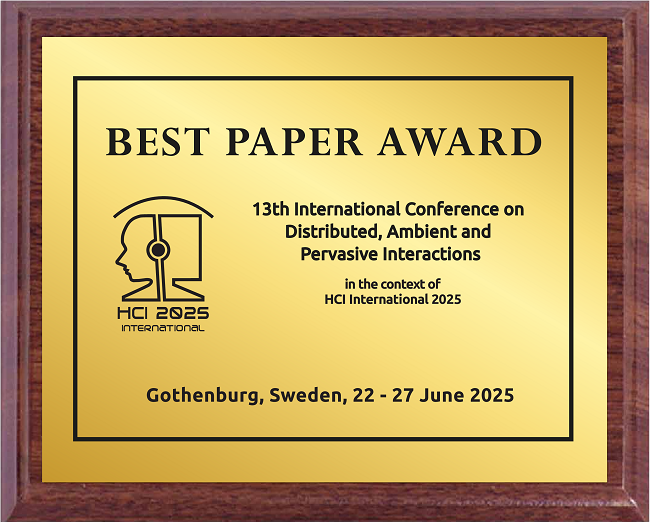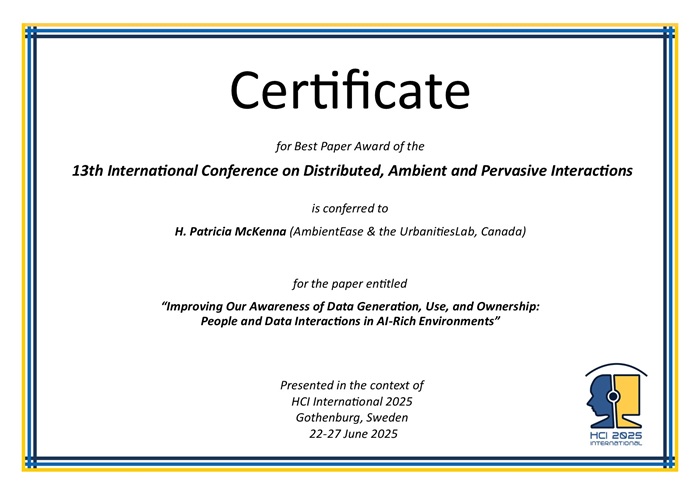The Best Paper Award of the 13th International Conference on Distributed, Ambient and Pervasive Interactions
has been conferred to
H. Patricia McKenna, (AmbientEase / UrbanitiesLab Initiative, Canada)
for the paper entitled
"Improving Our Awareness of Data Generation, Use, and Ownership: People and Data Interactions in AI-Rich Environments"

Patricia McKenna
(presenter)

Best Paper Award for the 13th International Conference on Distributed, Ambient and Pervasive Interactions , in the context of HCI International 2025, Gothenburg, Sweden, 22 - 27 June 2025

Certificate for Best Paper Award of the 13th International Conference on Distributed, Ambient and Pervasive Interactions presented in the context of HCI International 2025, Gothenburg, Sweden, 22 - 27 June 2025
Paper Abstract
Building on the example of people and car data interactions in AI-rich mobile environments, this paper provides an exploration of data generation, data use, and data ownership and alternatives, along with models and frameworks for data in digital environments. This exploration gives rise to the importance of improving our awareness of data issues, challenges, and opportunities. The literature review enables a synthesis and mapping of current data models. A conceptual framework for data in human-AI interactions in urban environments is formulated based on the literature review, to enrich understandings, and is operationalized for use in this paper and for other explorations. The methodology for this paper incorporates the use of probes, in the form of an online poll inquiry in real-time during a conference event, building upon and extending findings from the review of the research and practice literature. As such, this paper makes a contribution to ongoing explorations of data privacy, data ownership and alternatives (e.g., data donation, data sharing and trade-offs, data value creation), and data models and frameworks in the context of AI. This paper is significant in that it contributes to the making of a case for the evolving of current data models in an era of AI, opening the way for a rethinking of existing models and frameworks.
The full paper is available through SpringerLink, provided that you have proper access rights.


